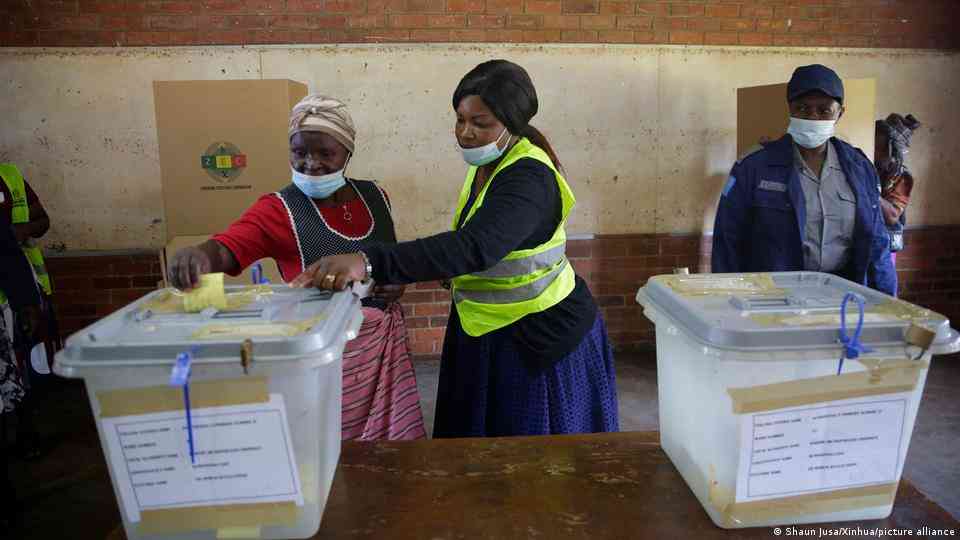
AFROBAROMETER has released findings of its latest survey in Zimbabwe, evidently generating a considerable amount of interest are the findings relating to Zimbabwe’s August 23, 2023 harmonised elections.
The survey findings have become the subject of discussion among many people, each person with their own view and in some cases common views are expressed. However, to what extent do perceptions about the direction the country is heading predict election results in Zimbabwe? The answer cannot easily be given without engaging in some rigorous scientific research and statistical analysis.
The challenge that immediately arises relates to the credibility of the official results announced by the Zimbabwe Electoral Commission (Zec). Each time Zec announces election results heated debate ensues with allegations of ballot manipulation flying.
But what seems to be lacking in the public discourse is evidence of rampant vote manipulation. Mostly, it is an emotionally-charged affair, given that elections naturally attract very strong views and positions, often with emotions clouding every other rational consideration, particularly when there is nothing tangible to support each rivals' position.
Surveys have shown that voters' trust in Zec is low. While the rationale behind Zec is for it to act as a referee, evidence shows that the referee also needs a referee, a typical “who will guard the guard situation”. Does Zimbabwe have such a referee or referees to monitor Zec?
There are civil society organisations (CSOs) whose work includes monitoring Zec to check how well it conducts its functions in line with its mandate. How much are these CSOs trusted by stakeholders, particularly voters? Again, the answer to this question, especially as it relates to CSOs in general and not specific CSOs, can be found in some surveys done by organisations such as Afrobarometer.
Returning to the Afrobarometer surveys as far as Zimbabwe’s election outcomes are concerned: What were the predictions in the last elections and what are the predictions now? In its last survey on the eve of the 2018 elections, the Mass Public Opinion Institute found that 40% of respondents would vote for Mnangagwa if elections were to be held a day after the survey was conducted, down from 42% previously. For Chamisa, the percentage was 37%, up from 31% previously. Voting intentions of 20% of the voters were unknown.
In Afrobarometer’s latest survey, 35% said they would vote for Mnangagwa and 27% for Chamisa; 27% did not say who they would vote for. The summarised version of Afrobarometer’s July 2018 findings does not have a comparable statistic to the 65% who said they were not happy with the direction the country was heading.
- CSOs dare African countries to implement humane drug policies
- Village Rhapsody: Marry Mubaiwa abuse: A stain on our conscience
- CSOs dare African countries to implement humane drug policies
- Village Rhapsody: Marry Mubaiwa abuse: A stain on our conscience
Keep Reading
But it is not a secret that Zimbabweans have been unhappy with the direction in which the country is heading for decades, something which seems to show that the economic voting theory does not apply in Zimbabwe. While this may not be the reason, or the only one, in 2017, former Cabinet minister Jonathan Moyo said (interestingly, talking about his exhortation of opposition politicians to believe Afrobarometer surveys): “Just to give you an indication, that is very important in my view and one which also indicates the kind of grounded politics we have. 1,8 million households in this country depend on land; their food security depends on land. And these 1,8 million people it’s like 9 million people. Often, when I talk to our colleagues in the other parties that we are difficult to dislodge and encourage them to believe the Afrobarometer type of surveys, they say, "Aaah no, you know, eeeeh look, how can anyone support you given this kind of state of the economy and so forth." And we tell them it’s because we are actually organically linked with these 1,8 million households. These are the ones we work with.
“Just this season we gave through the Presidential Input Scheme support to 1,6 million households. And we relate to them everyday. We don’t have to hashtag them, we don’t have to telephone them. We interact with them and say here is your 20kg of inputs, how are you doing? And in a season like this when the heavens open up the connections become real with these people.”
Zimbabweans may indeed be apprehensive and may opt not to reveal their genuine intentions when it comes to voting while expressing genuine feelings about their sense of the direction in which the country would be going, but we should “tame” our expectations about those who are reticent to vote in line with our assumptions. We would be better off not making assumptions about why there is the mismatch in aspirations and ballot outcomes, as well as making unfounded conclusions about the voting intentions of those who refuse to answer.
Lastly, it is very difficult to predict an election outcome in Zimbabwe by solely analysing survey results on perceptions, but one should also analyse past voting trends and other underlying political dynamics such as those highlighted by Moyo for a conclusive answer.
This is an abridged article by Rekai Rusinga, who writes here in his personal capacity.










